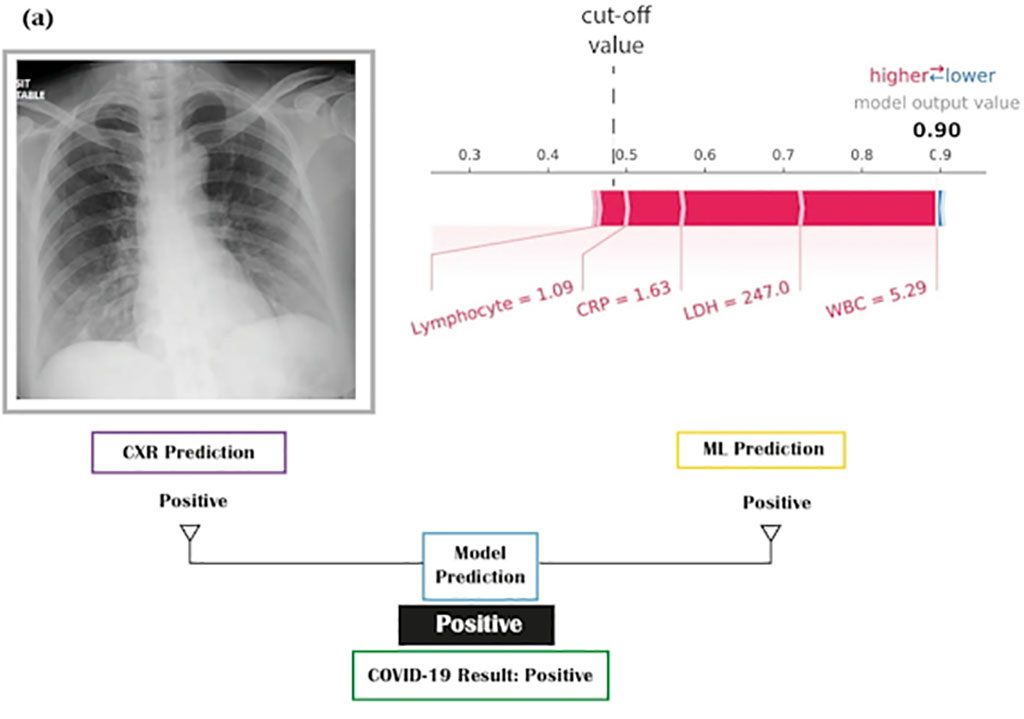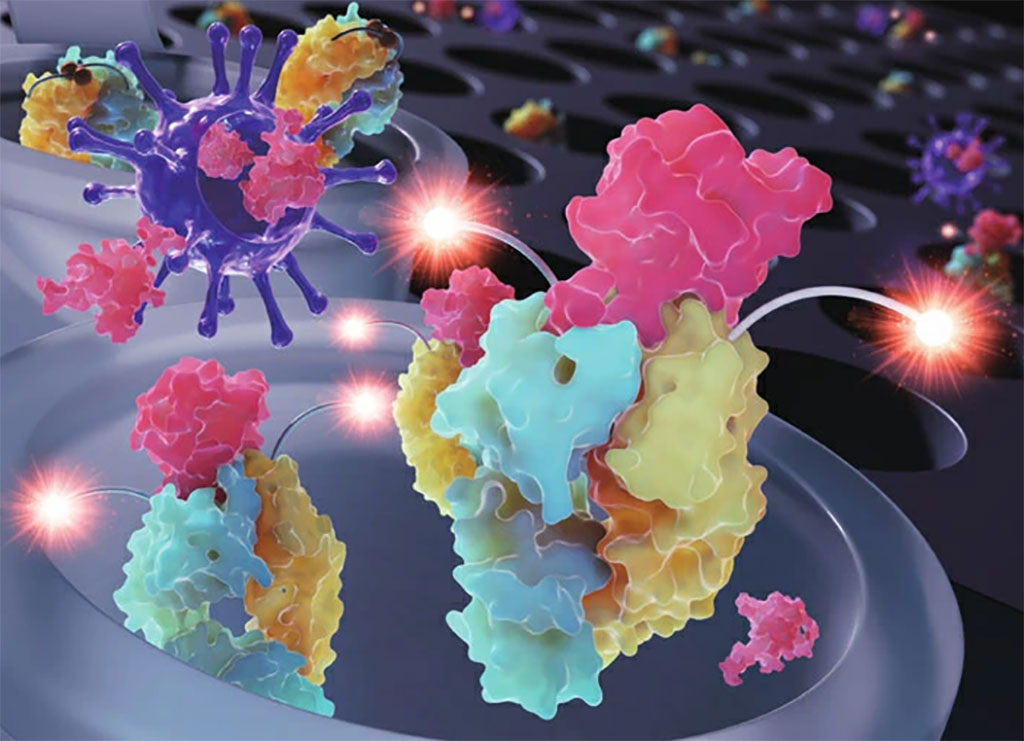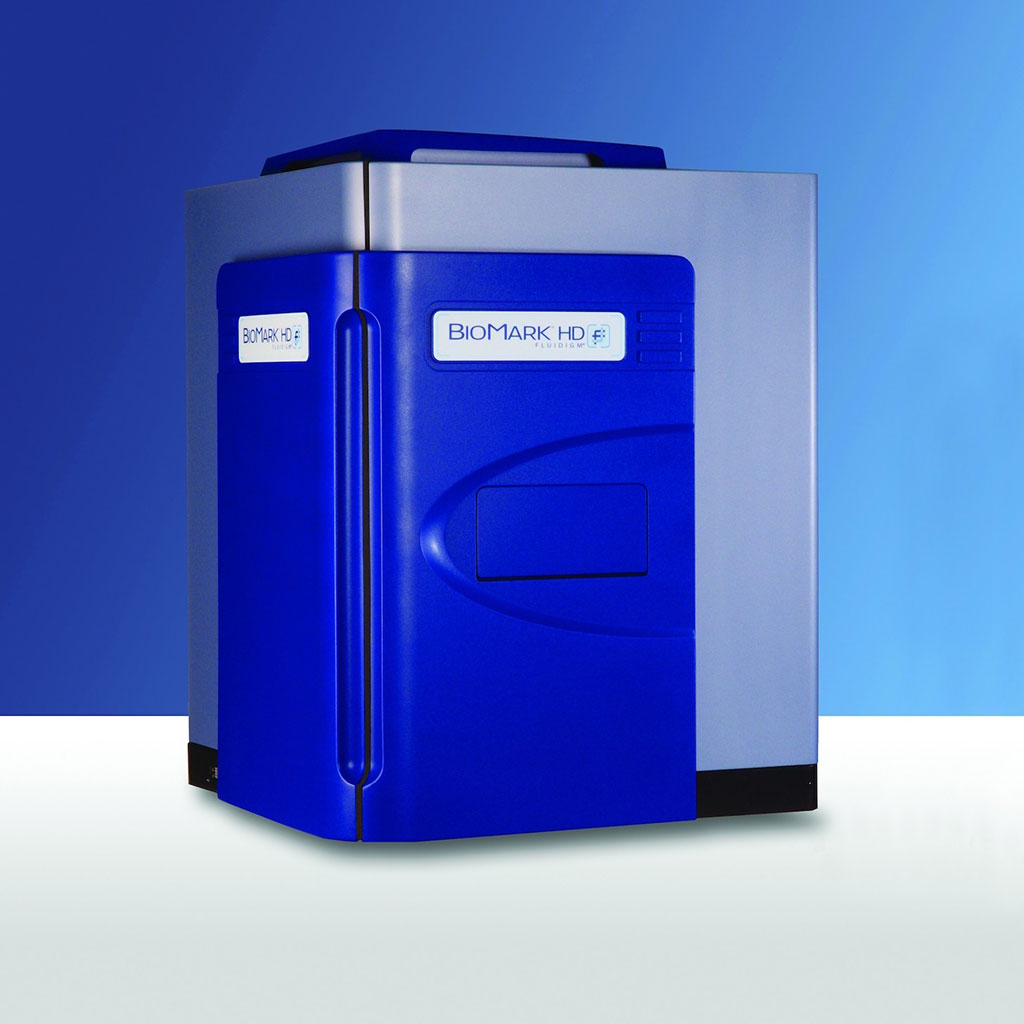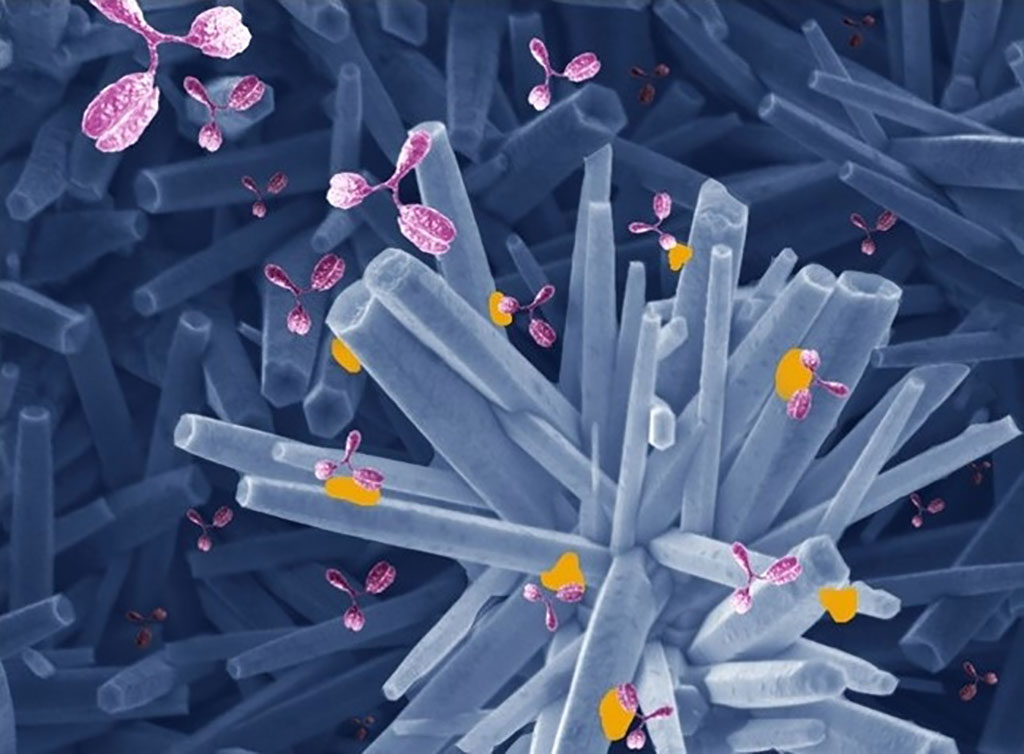Artificial Intelligence (AI) Model Identifies COVID-19 Patients Using Blood Tests and Chest X-Rays
By LabMedica International staff writers
Posted on 19 Jul 2021
Researchers have developed a machine learning (ML) application for the prediction of SARS-CoV-2 infection using blood tests and chest radiograph.Posted on 19 Jul 2021
The ML model developed by researchers at The University of Hong Kong (Hong Kong) was able to achieve high accuracy for the prediction of SARS-CoV-2 infection in a validation study. The adjunctive use of chest radiograph could play a role in increasing sensitivity while achieving moderate specificity when combined with ML blood model, which may have potential implications in triaging patients, particularly when RT-PCR testing resources are scarce.

Image: Artificial Intelligence (AI) Model Identifies COVID-19 Patients Using Blood Tests and Chest X-Rays (Photo courtesy of Nature)
The objective of this study was to apply ML for the task of COVID-19 detection using basic laboratory markers and explore the adjunctive role of chest radiographs. The researchers initially performed a statistical comparison of blood tests in patients with different aetiologies of pneumonia, including COVID-19 involving 5,148 patients in 24 hospitals in Hong Kong during the first and second waves of infection. This was done to establish a baseline laboratory comparison between COVID-19 from other pneumonia and other diagnoses. The researchers then trained and validated ML models using basic blood tests with comparison to reference RT-PCR testing to predict COVID-19 infection status, and explore different use case scenarios with adjunction of chest radiographs. The models were then validated with temporal validation sets across other waves of infection in Hong Kong.
For predicting SARS-CoV-2 infection, the ML model achieved high AUCs and specificity but low sensitivity in all three validation sets (AUC: 89.9-95.8%; Sensitivity: 55.5-77.8%; Specificity: 91.5-98.3%). When used in adjunction with radiologist interpretations of chest radiographs, the sensitivity was over 90% while keeping moderate specificity. The study showed that ML model based on readily available laboratory markers could achieve high accuracy in predicting SARS-CoV-2 infection.
Related Links:
The University of Hong Kong














